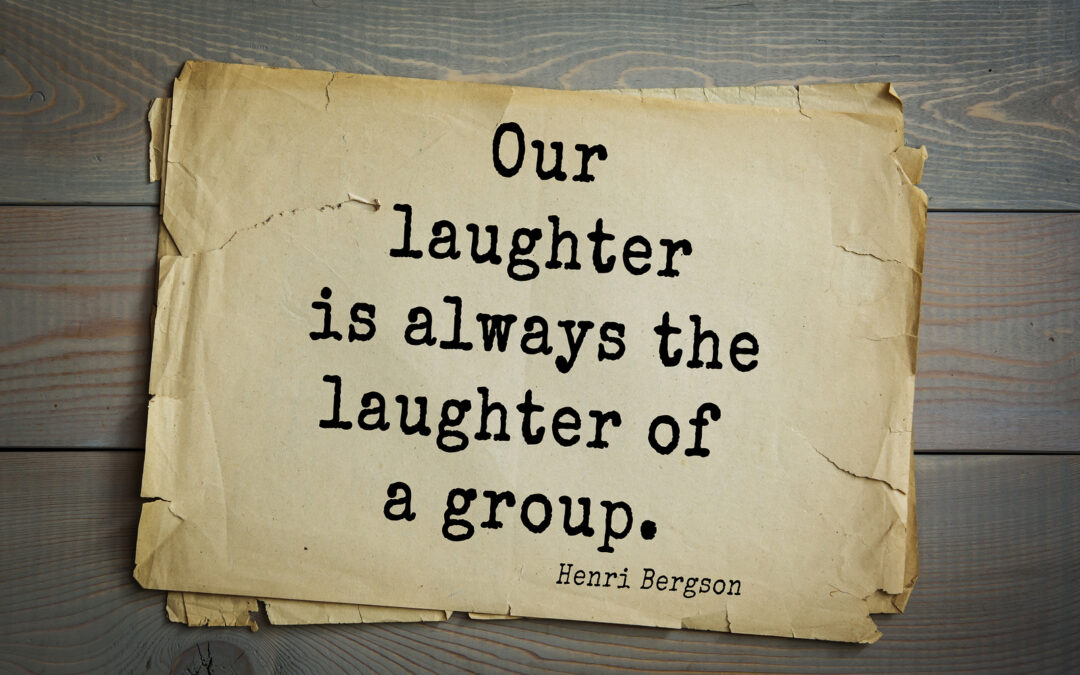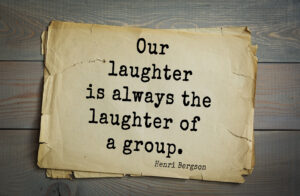Sarcasm in the Workplace: Does Sarcasm Have Any Place in a Business Setting?
Isn’t Sarcasm at Work Just Great? Or Am I Being Sarcastic Right Now?
A friend recently threatened to buy me a t-shirt emblazoned with the following:
“Zero Days Without Sarcasm”
So, evidently, I can be just a wee bit sarcastic from time to time. Which is completely normal and fine when we’re chilling with our friends or family, but when it comes to using humor in the workplace or in any professional context, is sarcasm the best route to success?
Given that the word ‘sarcasm’ is derived from the Greek word ‘sarkasmos,’ meaning to “tear at flesh like a dog,” the answer is probably, well, not so much.
And no, I’m not being sarcastic.
Now before we delved any further, a reminder of what sarcasm means, just so we’re clear on what we’re actually talking about here. Sarcasm is the use of words that mean the opposite of what you really want to say, especially in order to insult someone, to show irritation, or just to be funny. Saying, “they’re really SO organized” to describe a group of people who are very disorganized is using sarcasm.
Now, when it comes to the many benefits of humor at work, we need to include an important caveat: Positive styles of humor at work generate a multitude of benefits.
Dr Rod A. Martin, of the University of Waterloo, created a Humor Styles Questionnaire, to help distinguish potentially harmful humor from beneficial humor. The four styles are summarized as follows:
Affiliative humor: the tendency to tell jokes, make humorous observations, and say funny things to amuse others, reduce interpersonal tensions, and facilitate relationships.
Self-enhancing humor: maintaining a humorous outlook even when alone, being amused by the incongruities and absurdities in life, keeping one’s humor in the face of stress and adversity, and using humor to cope with challenges.
Self-defeating humor: the tendency to amuse others by saying funny things at your own expense, to use excessively self-disparaging humor, and to use humor to ingratiate yourself with others. This type of humor can also be used to avoid dealing with problems or issues in the workplace.
Aggressive humor: the tendency to use humor to criticize or manipulate other people, including sarcasm, ridicule, teasing, and disparaging humor.
Sarcasm then, according to Martin’s classification system, gets catalogued in the “aggressive” category of humor, one of the two humor styles that are considered negative or potentially damaging forms of humor.
Though most of us shift between humor styles depending on our mood and the context, we tend to have a predominate style that we practice most of the time, a style that likely impacts how psychologically healthy we are.
Affiliative and self-enhancing humor are, as you would guess, considered much healthier forms of humor and have been positively correlated with lower levels of depression and anxiety, and higher levels of self-esteem and overall psychological health. Whereas self-defeating and aggressive humor are associated with higher levels of hostility, aggression, and anxiety.
In addition to the potential negative impact on our health, sarcasm can also lead to awkward social situations and even create serious rifts in professional working relationships.
The pitfalls associated with sarcasm go well beyond the potential hostile nature of it. Sarcasm can often lead to serious miscommunication challenges with customers and colleagues, especially when we aren’t communicating face-to-face and can’t see the visual cues that might help us tell when someone is being serious or not. As someone once said, “The written word does not smile.”
And although an Israeli scientist developed a computer algorithm to help detect sarcasm, using a computer software program to analyze your boss’s emails seems like a lot of work and unnecessary hassle.
The Algorithm for Sarcasm Identification, incidentally, detected sarcastic sentences in online product reviews with a 77% accuracy rate, which is still better than what we mere mortals can manage. A study published in the Journal of Personality and Social Psychology found that although humans thought they could tell when something in an email was sarcastic 90% of the time, they were, in fact, right only 50% of the time! (Which calls to mind the term, ‘sarchasm’: the gulf between the author of a sarcastic wit and the person who doesn’t get it.)
Now, before we completely throw sarcasm under the humor bus, I should point out that there is also research suggesting some surprising benefits associated with sarcasm.
An article in Scientific America titled, yes, “The Surprising Benefits of Sarcasm,” revealed that the use of sarcasm in some contexts can enhance creative thinking. It takes creativity to generate sarcasm and to understand sarcasm, so the authors found that in certain situations, sarcasm can promote creative, lateral thinking. Even just thinking sarcastic thoughts (yes, using your inside voice only) can give you a creative jolt, the researchers found.
And was Oscar Wilde right when he wrote, “Sarcasm is the lowest form of wit but the highest form of intelligence”? Some researchers have suggested there’s a positive correlation between intelligence and the use of sarcasm.
Ultimately, whether sarcasm is a force for good or evil largely depends on the timing and context of the situation.
While using sarcasm with a first-time customer, when delivering a presentation to your board of directors, or when you’re in the process of letting an employee go, should all be considered “sarcastic no fly zones,” it’s only natural and normal for most people to use some sarcasm with their closest friends or colleagues. If you’ve worked alongside someone for 10 years, and you have a trusting relationship, then the sarcasm is likely going to fly back and forth with no hurt feelings or misunderstandings. Moreover, when sarcasm is used in a teasing manner, it can be seen as a positive sign that you are now part of the “in crowd” – you are one of us.
As a leader it’s also important to read between the punchlines. You may have employees that feel they can only express some uncomfortable truths under the cover of sarcasm, so don’t make the mistake of instantly dismissing their sarcastic comments or getting defensive. Listen for the truth that is being overlaid with a sarcastic comment.
There’s an old story, for example, of an automobile company that was closing many of their plants to cut costs. When one of the sales managers piped up during a meeting to sarcastically say, “Imagine how much money we’ll save if we closed down ALL the plants!” the senior leaders took a pause and reconsidered their strategy.
If, however, sarcasm is something to be mostly avoided in the workplace, what can you do to minimize the potential downsides associated with sarcasm?
First, simply raising awareness can help. Create a fun (and do keep it fun or it defeats the purpose) humor code of conduct to remind people to practice positive forms of humor as much as possible.
One notoriously sarcastic manager I met hung a Sarcasm Scale on his door which he would adjust each day to indicate how sarcastic a mood he might be in. The scale was a fun way to remind him to be careful of his overuse of sarcasm while also reminding his employees to not always take his comments at face value.
You could also consider a noise maker or a fun “warning flag” at meetings that participants can use whenever they feel someone has made a sarcastic comment and they want to clarify whether the person was being sarcastic or not.
Conversely, you can create a fun signal or phrase to warn people: “Sarcasm ahead. Please listen with caution.”
And although there have been efforts made to create sarcastic punctuation marks (such as the “SarcMark™”) to let people know you’re being sarcastic in a written note, they’ve largely failed to catch on, so my advice is to either spell it out for them or better, still, when putting something in writing, avoid using any sarcasm.
Ultimately, I believe you get the type of humor at work that’s reflected in your culture. If you have a positive, supportive, caring, and compassionate culture then chances are the humor that most employees practice is going to be positive.
Conversely, if you’re working in a soul-crushing, fun-sucking workplace then chances are very good that the use of sarcasm will rise and could even be used as a barometer to measure how positive and collaborative your workplace culture is.
So, what do you think?
Is sarcasm a force for good or evil in your workplace?
Do you, your boss, or a colleague overuse sarcasm?
Please leave a comment or question in the comment box below, I’d love to hear from you! Seriously!
 Michael Kerr is a Canadian Hall of Fame Speaker and author who speaks on inspiring workplace cultures, inspiring leadership, and humor in the workplace. He is the author of 8 books, including, “The Humor Advantage: Why Some Businesses Are Laughing All the Way to the Bank” and “The Jerk-Free Workplace: How You Can Take the Lead to Create a Happier, more Inspiring Workplace.” Michael is also the creator of the Culture Leadership Online Academy.
Michael Kerr is a Canadian Hall of Fame Speaker and author who speaks on inspiring workplace cultures, inspiring leadership, and humor in the workplace. He is the author of 8 books, including, “The Humor Advantage: Why Some Businesses Are Laughing All the Way to the Bank” and “The Jerk-Free Workplace: How You Can Take the Lead to Create a Happier, more Inspiring Workplace.” Michael is also the creator of the Culture Leadership Online Academy.







